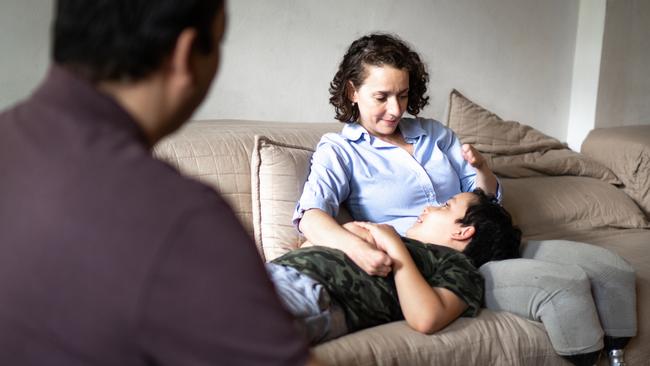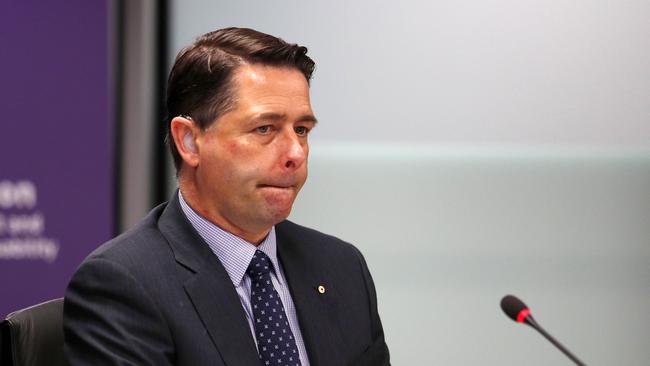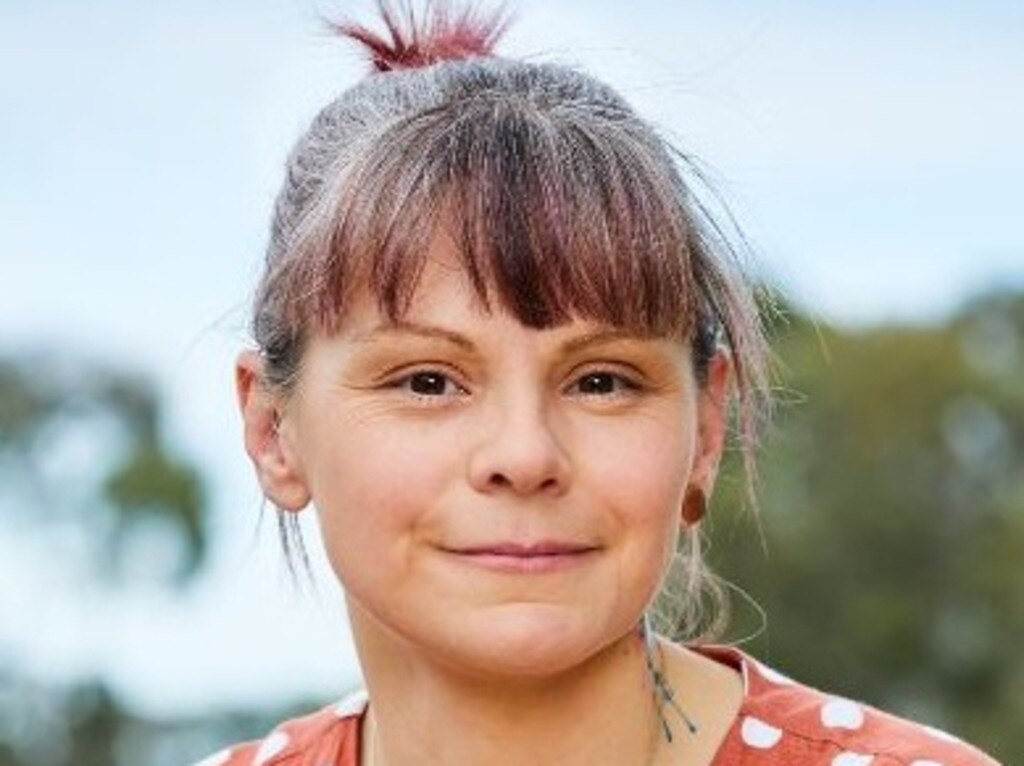Disability royal commissioner criticises governments for slow response to final report
State and federal governments agree on one thing about the royal commission’s final report. They won’t meet its recommendation for a response by March 31.
Disability royal commissioner Alastair McEwin has blasted state and federal governments for failing to meet the commission’s March 31 deadline to respond to its final report, saying their reason for the delay – more time to consult with stakeholders – showed a “lack of respect” to the 10,000 people who gave evidence to the commission.
State and federal disability ministers on Tuesday released a joint statement saying they would not be responding to the 222 recommendations of the $600m, nearly five-year royal commission by the proposed 31 March date.
They said addressing its recommendations required a “co-ordinated national effort” to disability reform which would take longer to finalise.
“Given the scale and complexity of reform recommended, and the importance of consulting widely and understanding implications, all governments will formally respond to the royal commission’s final report after 31 March 2024,” the statement said.

“The additional time will ensure responses are informed by the views of people with disability, their families, carers, representative organisations, service providers, unions and the broader community.
They committed instead to responding by mid-2024, nine months after the commission handed down its final report.
Dr McEwin, one of six commissioners, said the delay was “frustrating.”
“I note the governments say they need more time to get the views of disabled people and their families, but the commission spent four and half years hearing from over 10,000 people as well as conducting extensive public hearings,” he said.
“This delay and need to consult further shows a lack of respect to those 10,000 people who provided the commission with often very distressing accounts of violence, abuse, neglect and exploitation.”
“More delays and consultations will only reveal the same issues the commission addressed,” Dr McEwin, now a disability and human rights consultant and part-time senior fellow at the Grattan Institute, said.

NDIS minister Bill Shorten defended the delay, saying the federal and state governments were taking the report “very seriously.”
“But it’s 2.5 million words (in length),” Mr Shorten said. “The idea that you can just whistle up a response in a short time frame on every matter is unrealistic and would be a disservice to a royal commission which cost hundreds of millions of dollars and took five years to complete.”
Other commissioners were more accepting of the delay, with John Ryan saying the amended timetable was “understandable”.
Fellow commissioner Rhonda Galbally said “while I understand the frustration this might cause, they can take all the time they like if they are doing the work to phase out and end segregation.”
The royal commission into violence, abuse, neglect and exploitation of people with disability was Australia’s most expensive royal commission ever, costing $600m and running for more than four years.
Its final report on September 29 last year came down amid controversy as the commissioners were split on a range of reform issues.
They agreed the system needed a complete overhaul, including new laws to prevent discrimination, a new federal disability inclusion minister and a federal watchdog to police disabled people’s rights including under the National Disability Insurance Scheme.
And it proposed big reforms to how the education, health, housing, employment and legal systems support the needs of the 4.4m Australians with disability.
But they could not agree on the future of special schools and group homes, two key issues for people with disability.
The lack of a clear reform roadmap left disability advocates concerned that momentum for change would be lost and governments left confused about which path to take.
But the governments’ joint statement reiterated their commitment to “engaging deeply with the disability community to develop a unified ecosystem of support for people with disability.”
“Addressing these recommendations requires a co-ordinated national effort. All governments are committed to working closely together to support and implement the Royal Commission’s vision for an inclusive Australia, and to ensure reform will implement meaningful and lasting change,” it says.
Disability advocacy group People with Disability Australia president Marayke Jonkers said the extended timeline could allow deeper consultation on reforms.
“We need time and space for governments and people with disability to work together on a future that includes sustainable supports, inclusive communities and gets rid of segregated spaces where violence, abuse, neglect and exploitation of people with disability occurs,” she said.






To join the conversation, please log in. Don't have an account? Register
Join the conversation, you are commenting as Logout